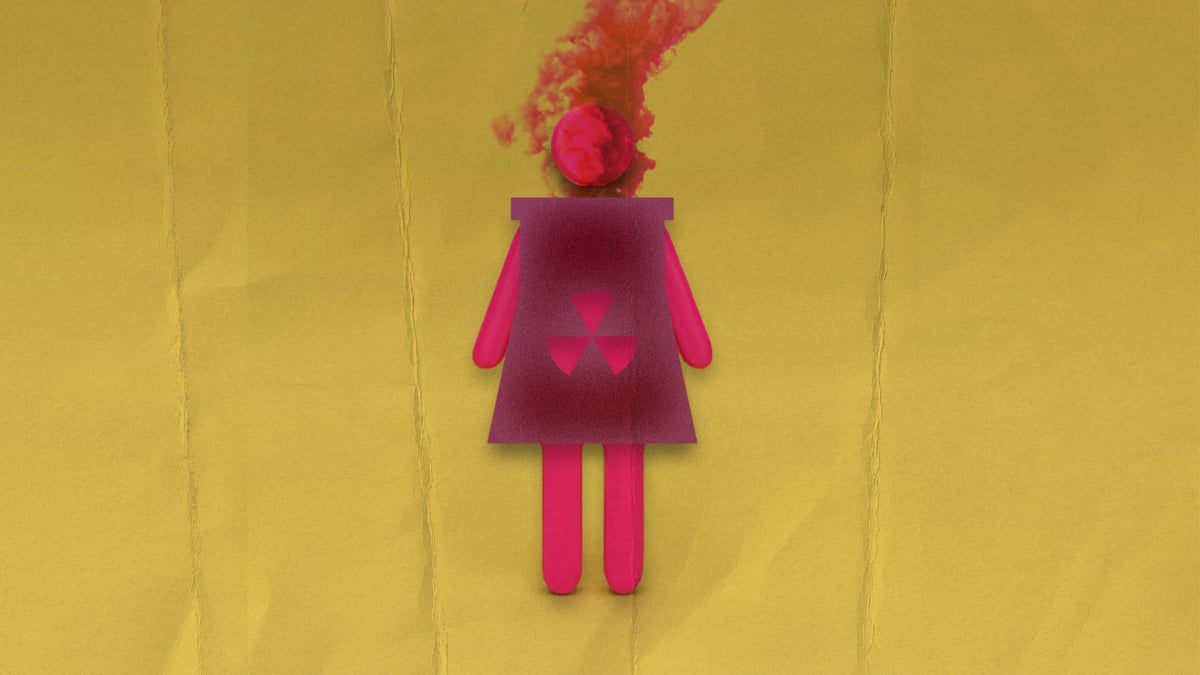Support strong Canadian climate journalism for 2025
Ask Google if you should buy an electric car, and one of the top hits will be a blog post from the organization "Canada Powered by Women" that lays out the vehicles' drawbacks and explicitly targets women.
Written in a seemingly neutral and measured tone, the post highlights the environmental demands associated with producing electric car batteries and the cost of installing home chargers or finding them on the road. It concludes with a laundry list of potential problems arising from EVs, offering little reassurance they are a viable purchase for people with busy lives.
Click through to Canada Powered by Women’s website, and you’ll find dozens of other blog posts targeted at women that throw shade on new technology and climate policy designed to draw down planet-heating greenhouse gas emissions. Many of the titles reveal a bias; for instance, a blog post asks if “net-zero homes are worth the cost," while another asks if there is "a credible alternative to the carbon tax."
The group also regularly runs op-eds and sponsored content (paid articles) in Canadian media outlets. For instance, a Globe and Mail sponsored article argues that women have been excluded from climate policy decisions, and suggests this has resulted in policies that do not adequately meet women's concerns around affordability, efficiency and the environment.
A look at the players behind the organization reveals a group that is entwined with Canada's fossil fuel and petrochemical industries. All of its six founding board members are oil and gas executives who speak routinely at industry events.
The group was founded in 2019 "by women in and around the energy sector" with the goal "to elevate [women's] voices in important conversations about the economy and energy," wrote Jenn Lomas, the organization's national marketing director in an email to Canada's National Observer.
"Women have been left out of the dialogue and our voices deserve to be heard," she wrote.
But critics say the group is a front for fossil fuel companies working to undermine the transition away from oil and gas.
"The assertion that women overwhelmingly… are in support of fossil fuel-based energy and if more women's voices were heard, then that message would be heard more – I don't know that's a provable assertion," said Melissa Lem, a doctor and president of the Canadian Association of Physicians for the Environment.
"That doesn't make sense. Women are going to be the most affected by climate change; they and their children are typically more affected by the air pollution that fossil fuels generate when they're combusted, in addition to the pollutants generated near to fossil fuel extraction sites."
Canada Powered by Women doesn't list its funders anywhere on its website – possibly a deliberate move to downplay its association with fossil fuel producers, Lem suggested.
According to Lomas, the group's spokesperson, the organization's activities are funded by donations from individuals, as well as organizations in the financial services, real estate and energy industries. Those activities include "extensive" public opinion research, in addition to the group's online and media presence.
Lomas refused to provide Canada's National Observer with a list of donors, writing that "while we are proud of the support we receive, we believe in the confidentiality of our donors, so I’m not able to share any further details."
A post on the website states the group "removed certain content from our website" following the passage of Canada's new anti-greenwashing law – Bill C-59 – earlier this year. The move echoed a move by the Pathways Alliance, a lobby group of Canada's six largest oil sands producers, after it wiped all content from its website following the bill’s passage.
Canada Powered by Women also sends representatives to public events, for instance, setting up a booth at the Calgary Stampede this year to bring "the unignorable voice of engaged women directly to decision-makers across party lines, including many visiting from throughout Canada."
The group represents over "5.6 million engaged women," Lomas said, and aims to amplify their voices and ensure "they are heard by those in positions of power."
The group is only one in a long line of organizations created by the fossil fuel industry to target women, warned Melissa Aronczyk, a professor at Rutgers University who specializes in climate disinformation.
"Fossil fuel messaging and "energy" campaigns have [been appealing] for women for a very long time," she wrote in an email to Canada's National Observer.
"The "smokescreen" in many of these campaigns is to hide fossil fuel promotion beneath a message of empowering women to close the gender gap on leadership roles. By doing this, fossil fuel companies aim to continue their successful drive to recruit a diverse group of potential consumers, investors and shareholders."
According to the International Energy Agency, women account for only about 16 per cent of the labour force in traditional energy sectors like oil and gas, with even fewer in leadership roles. The gap between men and women employed in the sector is more than twice as large as other sectors, and women employed in the fossil fuel industry typically earn about 20 per cent less than their male peers.
In contrast, women make up about a third of employees in the renewable energy sector, according to the International Renewable Energy Agency.
Moreover, the suggestion echoed in many of the blog posts and op-eds produced by Canada Powered by Women that many women do not support progressive climate and energy policies is not backed up by academic research.
Researchers have found that women's leadership in government leads to greater environmental protections, more stringent climate policies and the ratification of environmental treaties. They are also at the forefront of climate activism, notes the U.S. State Department, and are disproportionately harmed by the crisis.
"We know that within Canada women are more susceptible to the mental health impacts of climate change, whether it's PTSD after evacuations or eco-anxiety," said Lem. "It is important for women who support a healthy future and clean energy to also advocate, to get their voices out there and to try to create initiatives that do support what we know is in alignment with a livable future and a healthy climate."






Comments
The anti-EV proponents have also been targeting people with propaganda in general on social media. One of the more common negatives pushed with not buying an EV has been when one catches fire, giving it full exposure, while ignoring the many fossil fuel vehicles going up in smoke. Personally I have seen way more fossil fuel vehicle fires than witnessed EV fires.
My other favourite propaganda is an EV fire that burns down the house in the process.
I noticed in pro-EV comments online, additional comments that follow, that tend you make you feel you made a bad choice buying an EV over a fossil fuel vehicle and may include the LMAO or similar. The comment may even include false statements and links to disinformation sites.
No shortage of fossil-fuel boosters with two X chromosomes in Canada:
Danielle Smith, Vivian Krause, Rachel Notley, Sonya Savage, Christy Clark, Tamara Lich, Deborah Yedlin, Diane Francis, Donna Kennedy-Glans, Martha Hall Findlay, Anne McLellan, Heather Exner-Pirot, Gurpreet Lail, Susannah Pierce, Sue Riddell Rose, Dagmar H. Knutson.
Not all right-wingers, either.
"Canada Powered by Women" is just another astroturf group bought and paid for by the fossil-fuel industry.
"These Ladies Love Natural Gas! Too Bad They Aren't Real." (Mother Jones, 2020)
"The Gas Industry Is Paying Instagram Influencers to Gush Over Gas Stoves" (Mother Jones, 2020)
Perhaps we should rename Canada Powered by Women, as Canada Powered by Women with Gas.
One has to wonder about the morality of these women? Let's cook the world with natural gas and oil, while we rake in the profits and mislead the smarter half of our population.
Perhaps we should rename Canada Powered by Women, as Canada Powered by Women with Gas.
One has to wonder about the morality of these women? Let's cook the world with natural gas and oil, while we rake in the profits and mislead the smarter half of our population.